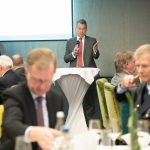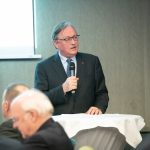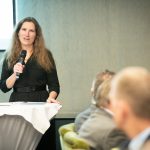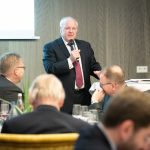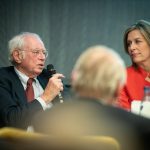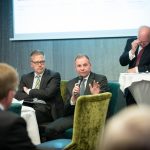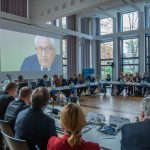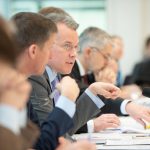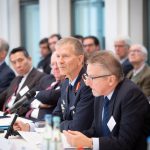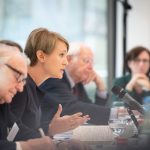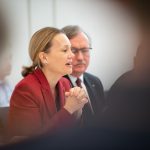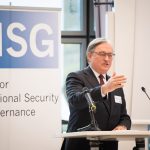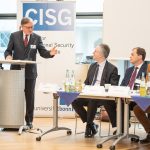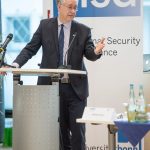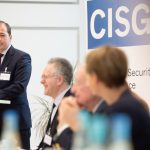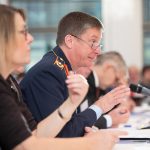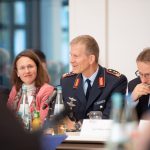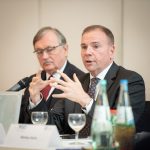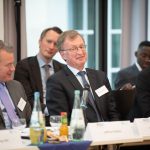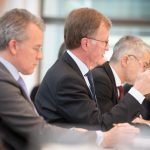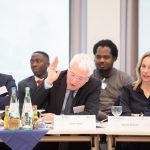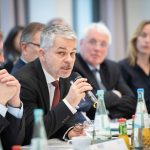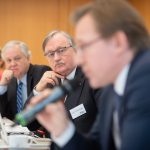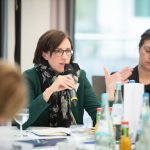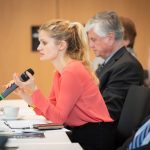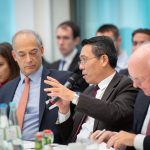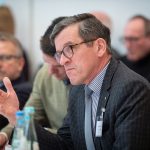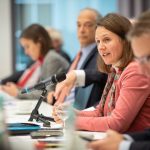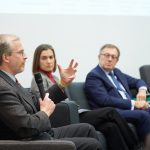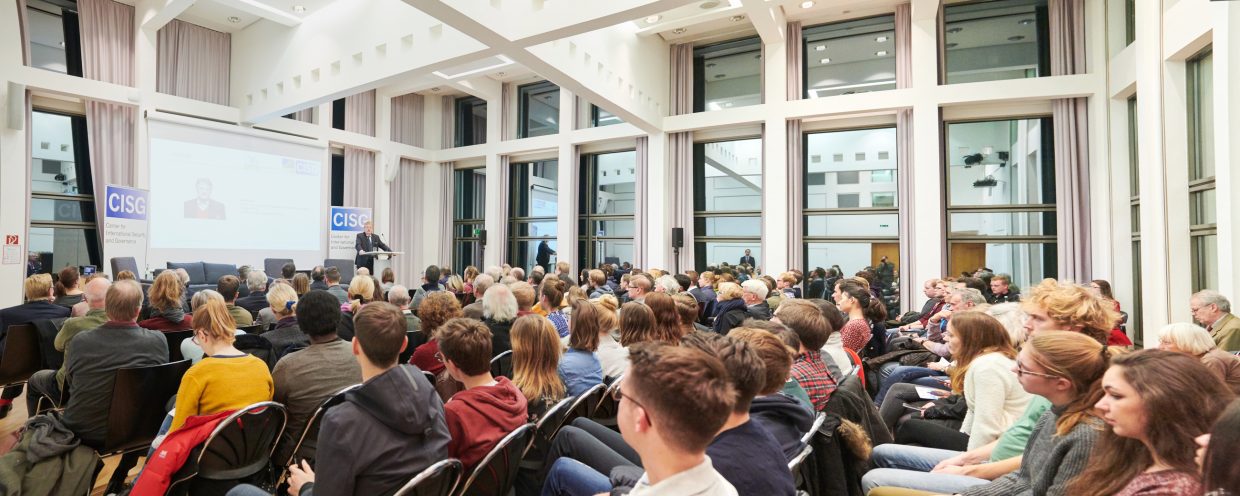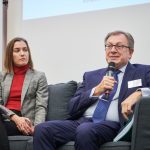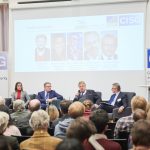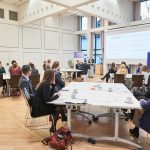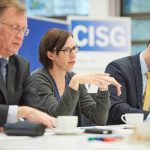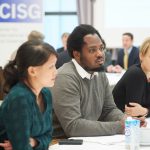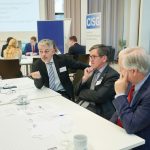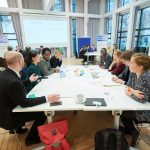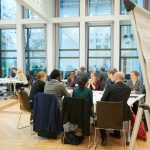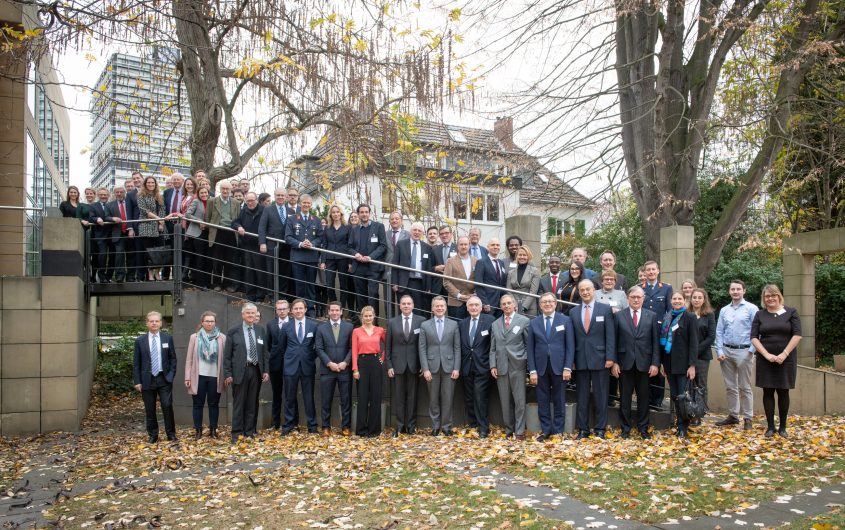
© Volker Lannert
Report and Executive Summary: Bonn International Security Forum
From November 18-20, 2018, the Center for International Security and Governance (CISG) of Bonn University and the American-German Institute (AGI) of Johns Hopkins University hosted the third Bonn International Security Forum. Over the course of the three-day event, numerous foreign policy and security experts, practitioners, and researchers from Europe, Asia, the United States, and Russia gathered in the former capital of Germany to engage in lively and in-depth debates on the mounting challenges in international relations. While the Forum presented a clear focus on Europe and its ambitions to bear more responsibilities in global affairs, the state and future of the transatlantic relationship remained one of the cornerstones of the debates. Increasing mutual understanding and strengthening transatlantic exchange at a time when the longstanding partnership has entered a difficult stage was the underlying theme of this year’s Forum.
Dinner Talk
To kick off the event, guests gathered for a Dinner Talk on Sunday, November 18. Over desert and coffee, a panel consisting of Julianne Smith, Elizabeth Sherwood-Randall, Jackson Janes, Ben Hodges, Markus Kaim, and Klaus Scharioth discussed the implications of the U.S. retreating from its global leadership role for diplomacy and international security. Their thoughtful analysis, along with a firm call to rethink German international engagement, set the stage for the upcoming multi-day event.
Conference
In three sessions during the conference on Monday, participants aimed to find answers to three overarching questions:
- Are Germany and Europe stepping up to bear more responsibilities in international affairs as the United States withdraws from international leadership?
- What are the implications of a rising China for international order and security?
- How can global governance and international order adapt to the emerging multipolar world?
A particular highlight of the morning session was a video interview conducted by Karl Kaiser with Henry Kissinger, that touched on Europe, China, and Germany’s changing responsibilities.
Instead of giving lectures on these issues, Bonn International Forum participants were invited to make short five-minute statements to serve as impulses for the following open discussion among all participants. As in previous years, debates were held under the Chatham House Rule, which allowed free, open, and stimulating debates.
Most notable during the course of the Forum was a broad consensus on one vital issue: the irreversibility of current shifts in international relations. Most participants agreed that international politics is undergoing a fundamental change, making a snap back to the status quo ante—even after any change in the U.S. administration—extremely unlikely. There was also a broad consensus that the question of whether Europe is stepping up can only be answered with a resounding “Yes and No.” While some substantial progress has been made with regard to initiatives such as PESCO, NATO’s Framework Nations Concept (FNC), and the European Union Global Strategy, a number of serious obstacles remain, most notably the lack of public support for reform in multiple European countries. According to some voices, Germany especially shows signs of backsliding from its pledge to assume more responsibility as political majorities are shifting. It remains to be seen whether Europe is ready and able to become an equal partner to the U.S.—while not knowing whether the U.S. even has an interest in such a relationship.
The wide range of diverging assessments and perspectives coming together at the conference showed that the process of adapting to changes in the international system will require an immense amount of effort, consideration, reflection, and the political will to compromise and cooperate. Leaders and practitioners will need to find a way to make the great powers come together, and partners will need to make each other understand their respective positions and rationalities regarding issues such as European defense spending, for example, to a greater extent than they have done in the past.
Public Lecture: “How to Avoid War – Diplomacy in a Multipolar World”
As a special feature, this year’s Forum also coincided with the University of Bonn’s 200th anniversary. To celebrate the university’s long tradition of public engagement and to mark this special occasion, the Forum included a public lecture and panel discussion on Monday evening to address the growing uncertainties in international relations and the role of diplomacy in the twenty-first century. In front of a packed auditorium, Dr. Amanda Sloat, Elmar Brok, Dr. Karl-Heinz Kamp, David Kramer, and Ambassador Tacan İldem discussed what role diplomacy can play under today’s political conditions. While they partly differed in their analyses and assessments, the evening’s overall conclusion was clear: Even as the current political conditions are posing a serious challenge for dialogue and diplomacy, diplomatic efforts significantly contain conflicts, tensions, and violence and must not be discarded—even, or especially, in difficult times.
Scenario Round-Table
On Tuesday, November 20, the Forum concluded with a special scenario round-table. The event was an “intellectual live exercise” chaired by Prof. Carlo Masala to bring together young professionals and experienced practitioners in order to blend fresh perspectives with practical experience. Participants discussed and developed strategies for two fictitious
security scenarios: Scenario One featured a drone attack on a NATO convoy transporting high-level NATO officials. The convoy’s route was predicted by the use of artificial intelligence software and Big Data installed in BRICS countries’ smart major city infrastructure by the Chinese tech giant Alibaba. Scenario Two depicted President Trump’s decision to fully de-commit U.S. forces from NATO as a consequence of the European NATO countries reluctance to spend 4 percent of GDP on defense.
While the experienced experts and practitioners in the fields of defense and security provided illuminating insights into the inner workings of NATO, international institutions, and governments, the young professionals focused on including a broader number of factors, aspects, and actors to develop a multifaceted strategy. Thus, expertise and out-of-the-box thinking came to together in a perfect mix resulting in new approaches and concepts to tackle possible future challenges.
As in previous years, the Forum offered another important contribution to the transatlantic and European exchange of ideas, arguments, and perspectives.
A detailed report on all the sessions as well as the scenario round-table will follow in the beginning of 2019. The full reports will be uploaded to our homepages: www.cisg-bonn.com and americangerman.institute. Stay tuned!



